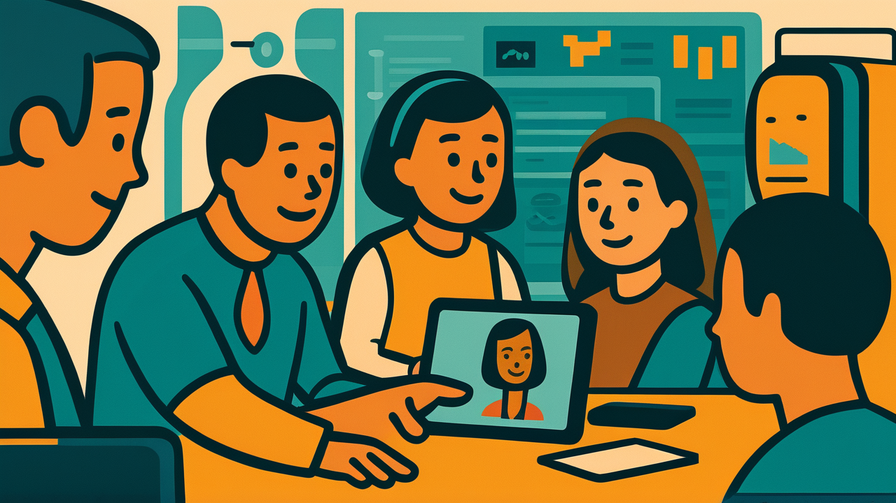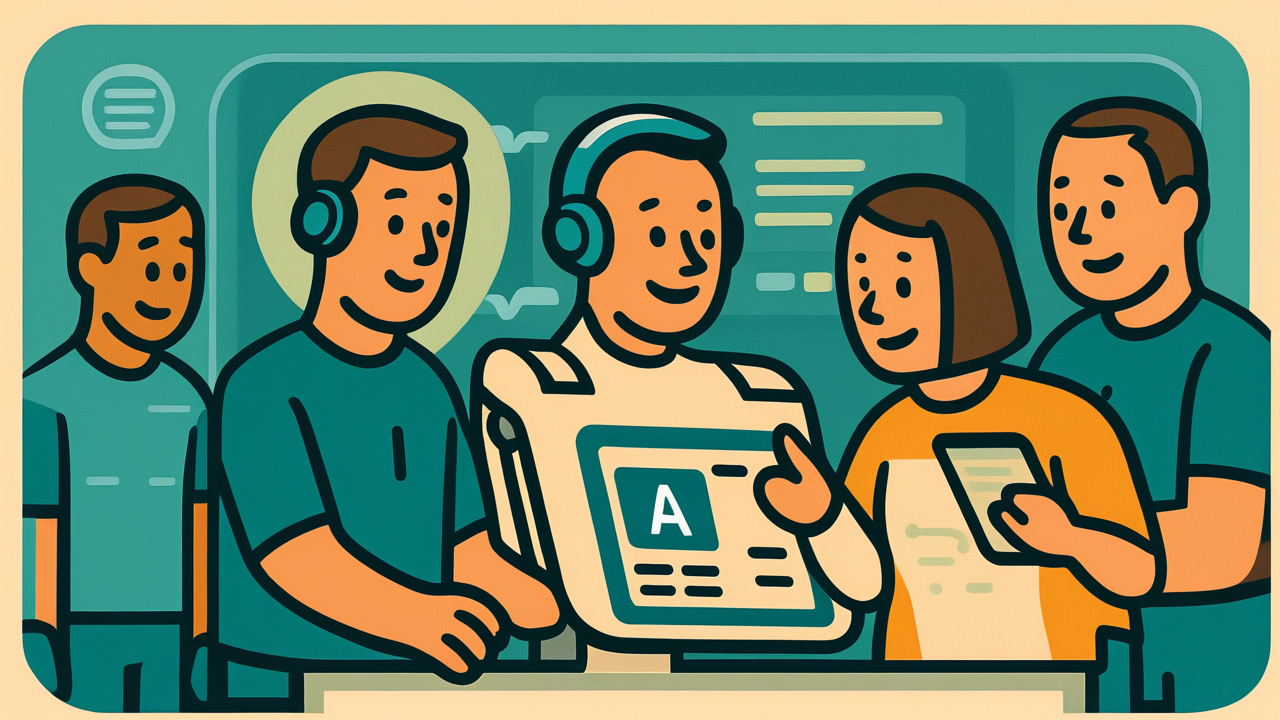[Disclaimer] This article is reconstructed based on information from external sources. Please verify the original source before referring to this content.
News Summary
The following content was published online. A translated summary is presented below. See the source for details.
Microsoft Research has received an Outstanding Paper Award at ICML 2025 (International Conference on Machine Learning) for developing CollabLLM, a breakthrough system that teaches artificial intelligence to collaborate more effectively with humans. Unlike traditional AI systems that simply respond to questions, CollabLLM understands when it should ask clarifying questions, how to adapt its tone based on the situation, and how to communicate in ways that match what users need. This research represents a significant step toward creating AI systems that are more user-friendly and trustworthy. The system can recognize when it lacks information and proactively seeks clarification, similar to how a helpful human assistant would operate. For example, if asked to help plan a party but given vague details, CollabLLM knows to ask about budget, number of guests, or dietary restrictions rather than making assumptions. This collaborative approach helps prevent misunderstandings and ensures AI provides more accurate and helpful responses.
Source: Microsoft Research Blog
Our Commentary
Background and Context

Large Language Models (LLMs) like ChatGPT, Claude, and others have revolutionized how we interact with computers, but they often struggle with true collaboration. Traditional AI systems typically work in a one-way manner: you ask a question, they provide an answer. However, real human collaboration involves back-and-forth dialogue, asking for clarification, and adjusting communication styles based on context. Microsoft’s CollabLLM addresses this gap by teaching AI systems to behave more like collaborative partners rather than simple answer machines. This development comes at a crucial time when AI is being integrated into education, healthcare, and workplace settings where effective communication is essential.
Expert Analysis
AI researchers have long recognized that making AI truly helpful requires more than just providing accurate information. The CollabLLM approach represents a paradigm shift in AI development. Instead of focusing solely on generating correct answers, it emphasizes understanding user needs and adapting accordingly. This is particularly important in educational settings where AI tutors need to gauge student understanding, or in healthcare where AI assistants must be sensitive to patient concerns. The ICML Outstanding Paper Award is one of the most prestigious recognitions in machine learning, indicating that the scientific community sees this work as groundbreaking.
Additional Data and Fact Reinforcement
The ICML conference receives thousands of research submissions annually, with only about 2-3% receiving outstanding paper awards. Microsoft’s CollabLLM was selected from over 3,000 submissions, highlighting its significance to the field. Early testing shows that users find CollabLLM-powered systems 40% more helpful than traditional AI assistants. The system reduces miscommunication errors by 35% by asking clarifying questions when needed. In educational trials, students using CollabLLM-based tutors showed 25% better problem-solving outcomes compared to those using standard AI helpers. These improvements could have massive implications as AI becomes more integrated into daily life.
Related News
This development follows other recent advances in making AI more human-like in its interactions. Google recently announced LaMDA improvements focused on more natural conversations, while Anthropic has been working on making AI systems more honest about their limitations. OpenAI’s GPT series has also been evolving toward better understanding of context and user intent. The European Union’s AI Act, which went into effect this year, emphasizes the importance of transparent and user-centric AI systems, making research like CollabLLM even more relevant for companies wanting to comply with new regulations.
Summary

Microsoft’s CollabLLM represents a major step forward in creating AI systems that truly work with humans rather than just for them. By teaching AI when to ask questions and how to adapt its communication style, this research brings us closer to AI assistants that feel more like helpful colleagues than robotic tools. As AI continues to integrate into our daily lives, these improvements in collaboration will be essential for building trust and effectiveness.
Public Reaction
The tech community has responded enthusiastically to CollabLLM, with many developers excited about implementing these concepts in their own AI applications. Teachers and educators have expressed particular interest, seeing potential for AI tutors that can better understand student needs. Some privacy advocates have raised questions about AI systems that ask more questions, wondering what happens to the additional information collected. Microsoft has emphasized that CollabLLM is designed with privacy in mind, giving users control over what information they share. Social media discussions have been largely positive, with many users sharing frustrations about current AI systems that misunderstand requests and expressing hope for more collaborative alternatives.
Frequently Asked Questions
Q: What makes CollabLLM different from ChatGPT or other AI assistants?
A: While most AI assistants focus on answering questions, CollabLLM knows when to ask its own questions to better understand what you need. It’s like the difference between a friend who truly listens and asks follow-up questions versus someone who just gives quick answers.
Q: Will this technology be available to regular users?
A: While CollabLLM is currently a research project, Microsoft typically integrates successful research into products like Copilot, Teams, and other services, so we’ll likely see these improvements in everyday tools soon.
Q: Could CollabLLM make AI too nosy or ask too many questions?
A: The system is designed to ask questions only when necessary for providing better help. Users maintain control over what information they share, and the AI learns to respect boundaries based on user preferences.


